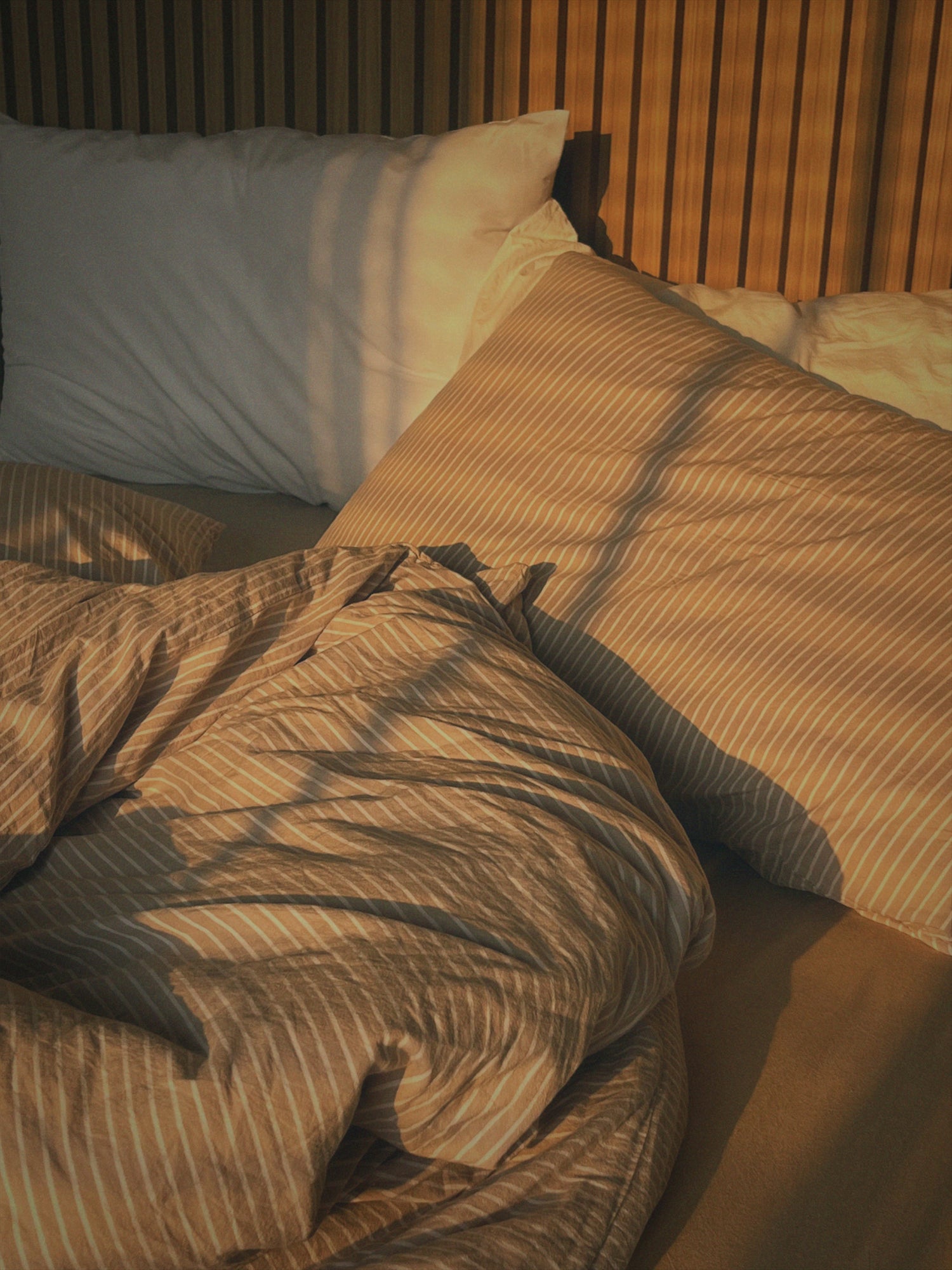Struggling to sleep during perimenopause or menopause? Falling oestrogen and progesterone can disrupt your sleep-wake cycle, raise nighttime stress hormones and cause overheating in bed. Many women explore natural menopause supplements in Australia to support calmer nights. With the right hormone support, you can finally fall asleep faster and stay asleep — without relying on medication.
In Short
Hormonal changes during perimenopause and menopause can seriously disrupt sleep — causing night sweats, broken sleep, early waking, and racing thoughts. As oestrogen and progesterone levels drop, the brain’s ability to calm the nervous system and regulate core temperature becomes less stable. When sleep goes, everything feels harder — your mood, metabolism, energy, focus, and overall wellbeing. The good news? You can restore your sleep naturally by supporting your hormones and nervous system. Thousands of Australian women use natural menopause supplements to help reduce symptoms and sleep better — especially products containing magnesium and calming botanicals.
Key Takeaways
- Hormones drive sleep quality. Falling oestrogen & progesterone levels are major causes of night waking, hot flushes, anxiety and restlessness at night.
- Sleep loss worsens menopause symptoms — creating a cycle.Supporting your hormones with natural menopause supplements in Australia may help improve sleep quality, temperature control and mood regulation.
- Nutritional + lifestyle changes can help you sleep longer, stay asleep, and wake up refreshed.
- The Happy Healthy You Sleep Bundle (MSP, Happy Hormones, and Happy Calm) targets all areas — helping you fall asleep faster, stay asleep longer, and wake up refreshed.
If you’ve found yourself wide awake at 2am, tossing and turning while your mind races, you’re not alone.
Sleep problems are one of the most common (and frustrating) symptoms women face during perimenopause and menopause.
You might be doing “all the right things”, cutting caffeine, avoiding screens, trying to relax, yet deep, uninterrupted sleep still feels out of reach.
The reason? It’s not just stress or bad habits. It’s your hormones.
How Do Hormones Cause Sleep Problems in Perimenopause and Menopause?
During perimenopause and menopause, your oestrogen and progesterone levels naturally decline.
These hormones play a major role in how well you sleep and when they fluctuate, your body’s sleep-wake cycle can go completely out of sync.
Here’s what’s happening inside your body:
- Less melatonin – Oestrogen helps regulate melatonin, your body’s “sleep hormone”. When levels drop, it becomes harder to fall and stay asleep.
- Hot flushes and night sweats – Changes in body temperature can wake you multiple times a night.
- More cortisol – Lower progesterone can lead to increased stress hormone levels, leaving you wired at night but exhausted in the morning.
-
Mood swings and anxiety – Hormonal imbalance can heighten anxiety and restlessness, making it harder to wind down before bed.
The result? You wake feeling groggy, foggy, and fatigued, no matter how early you went to sleep.
Why Quality Sleep Matters in Menopause and Perimenopause
It’s easy to underestimate sleep. But during menopause, it’s one of the most powerful tools your body has for healing and hormonal balance.
When you sleep deeply, your body:
- Regulates hormone production (including oestrogen, cortisol, and insulin)
- Repairs tissues and supports immune function
- Balances mood and mental clarity
-
Reduces inflammation that drives many menopause symptoms
Without enough restorative sleep, everything from your energy and mood to your metabolism, begins to suffer.
How to Sleep Better in Menopause Naturally (Without Medication)
You don’t have to rely on sleeping pills or “push through” the exhaustion. Supporting your hormones and nervous system naturally can help restore deeper, more restful sleep.
Here are a few steps to get started:
-
Support hormonal balance
When your hormones are more stable, your sleep cycle follows. Happy Hormones is a practitioner-designed formula that supports natural hormonal regulation throughout perimenopause and menopause — making it one of the best natural menopause supplements in Australia for improving hormone-related sleep disruptions. -
Relax your nervous system before bed
Magnesium plays a key role in muscle relaxation and nervous system calm, which is why many women look for magnesium for hormones during menopause. Our MSP Magnesium Sleep & Pain formula helps the body unwind faster and encourages deeper, more restorative sleep. -
Soothe the stress response
Night-time anxiety and a racing mind are common when hormones fluctuate. Happy Calm supports the nervous system and promotes relaxation — offering natural hormone support for better sleep in perimenopause and menopause. -
Create a gentle nighttime routine
Keep lights dim, avoid screens 30 minutes before bed, and try breathing or mindfulness exercises. Pairing a calm environment with natural menopause supplements can help your body recognise it’s time to rest and stay asleep longer.
Shop Our Sleep Bundle
Our natural Sleep Bundle is designed to help calm your mind, support your hormones, and improve deep, restorative rest.
Our naturopath team created the Sleep Bundle to address menopausal and perimenopausal sleep issues from every angle, hormonal, physical, and emotional.
💤 MSP Magnesium Sleep & Pain - Relaxes muscles and eases tension for deeper sleep.
🌸 Happy Hormones - Supports hormonal balance to reduce night sweats, hot flushes, and disrupted sleep.
😌 Happy Calm - Soothes stress and restlessness to help you switch off before bed.
Together, they work to rebalance your body’s natural sleep rhythm, helping you fall asleep faster, stay asleep longer, and wake feeling truly rested.
You Deserve Restful Sleep Again
Sleep isn’t a luxury, it’s essential to how you think, feel, and function each day.
With the right support, you can ease night-time restlessness, rebalance your hormones, and wake up ready to take on the day.
You don’t have to put up with sleepless nights.
You just need to give your body what it’s asking for - balance, calm, and rest.









Leave a comment
This site is protected by hCaptcha and the hCaptcha Privacy Policy and Terms of Service apply.